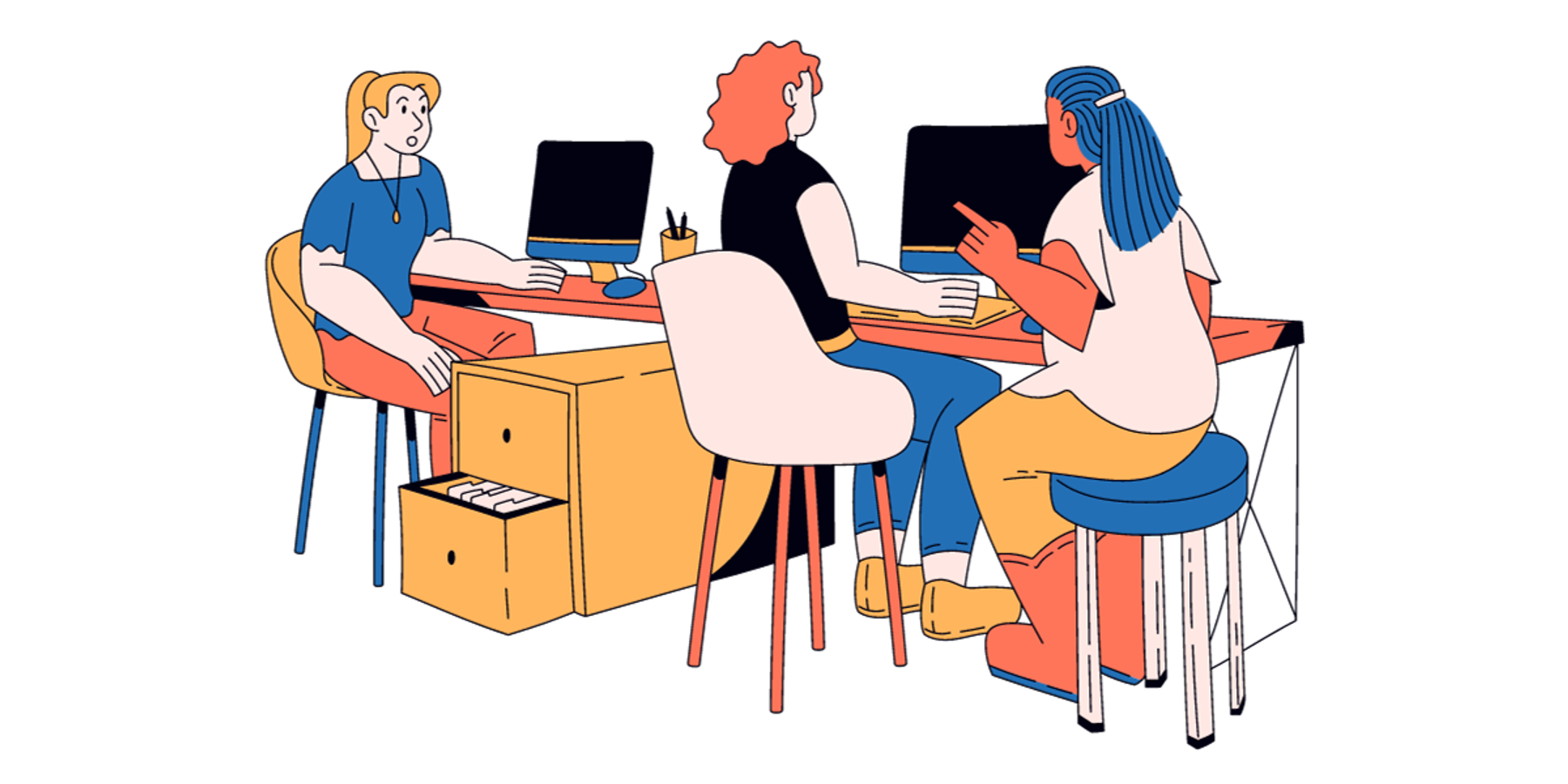"He just insulted me, didn't he?" I thought, as I approached the door.
I replayed my interviewer's words in my head: "You're rather overqualified… you know, for a young girl."
He'd said it with a smile on his face… Surely he meant well. Maybe I was being paranoid.
But I couldn't shake the feeling that it was diminishing. It felt like a backhanded compliment—an implication that it wasn't normal for a "girl" my age to have achieved so much.
At the time, I didn't know what a microaggression was, but I sure knew how it felt to receive one.
So, What Is a Microaggression?
Microaggressions are (generally) unconscious expressions of sexism, racism, or other discriminatory views towards marginalized groups.
As Columbia professor Derald Wing Sue explains, they're "everyday slights, indignities, put-downs, and invalidations that people of color [and other marginalized groups] experience in their day-to-day interactions with well-meaning people who are unaware that they've delivered a put-down."
Most microaggressions are the result of ignorance or unconscious bias on behalf of the perpetrator. But just because these "slips of the tongue" tend to be unintentional doesn't mean they aren't harmful or that we can't expect people to become aware of the microaggressions they use and take responsibility for them.
Furthermore, microaggressions are not just verbal expressions. From interrupting female colleagues during meetings to expecting them to take notes and/or pour coffee, there are a number of subtle, yet insulting behaviors, that can also be categorized as microaggressions.
Some Examples of Microaggressions Women Experience in the Workplace:
- Being assigned a role or task only because of their gender
- E.g., to decorate the office for a party, to take notes in a meeting, to get coffee
- Having their competence/seniority questioned
- A friend of mine who is a retail store manager always meets clients who ask for her manager when they have a problem. She's the manager, but they just don't believe her.
- Getting interrupted by men in meetings
- Having men take credit for their ideas
- Being told to dress/present themselves a certain way
- This isn't a knock on professional dress, but there's a difference between letting everyone know they need to wear suits to meet with a client, and telling a women, "Why don't you wear your hair down? You look prettier that way."
- Being told they're too sensitive
- Being accused of having no sense of humor (especially if they're expressing anger over a sexist joke being told)
- We like laughing. Actually, we love it. But honestly, when cruelty is disguised as harmless humor, women have just had enough of it.
- Not being invited to participate in office-related activities thought of as being "for the boys"
- A company basketball/soccer/other sports league, golf outings, after office drinks, etc.
- Not getting one-on-one time with the boss because he "refuses to spend time alone with women" (See Mike Pence and these jerks on Wall Street)
When it comes to gender microaggressions, women are faced with a catch-22. If they call their colleagues out for what they've said, they'll often be met with the response, "You're too sensitive. Can't you take a joke?"
Which is itself another microaggression, implying that women are too emotional and have no sense of humor in order to defend an unkind remark.
To add insult to injury, when these kinds of behaviors and remarks surface in the workplace, they often seem innocuous to everyone but the person whose identity was slighted.
So if you find yourself experiencing lots of gender-based microaggressions at work, what can you do to assert your needs and minimize backlash?
In some cases, given the subtle nature of microaggressions, it may be impossible to avoid said Catch-22, but there are a few different ways you can respond, depending on your comfort level and the severity of the remark.
When deciding amongst these four options… try asking yourself first, "What do you want the result to be?" and go from there.
So, How Can You Respond to Microaggressions at Work?
1) Play along with them
Desired Result: Draw as little attention to yourself as possible.
This is what I often do, and I hate myself for it… because I feel like I'm helping to reinforce bad behavior.
That said, it is not your responsibility to teach every sexist person you encounter at work the error of their ways. Some days, you will not have the mental or emotional bandwidth to do anything but play along with it… and other times, you will not feel comfortable showing the slightest sign of discomfort, because the offender is your boss or someone else with significant power over you.
That's okay, do what you need to do to get past it in the moment.
2) Call the person out
Desired Result: You want the offender to know you're not cool with what they've said/done, and you don't care if they dislike you for telling them.
How you go about this is up to you, but confronting the person and their statement head on is always an option.
If done well and directed towards a receptive listener, you can turn the moment into a learning opportunity and help ensure this person doesn't unwittingly insult more people.
And most likely, you'll also feel better for having stood your ground.
3) Remove yourself from the situation
Desired Result: You want to avoid direct conflict, but you also don't want to imply you're okay with what was said.
Just as in approach #1, it's not your responsibility to educate the perpetrator, even if they've said something offensive unwittingly. If you don't feel comfortable calling the person out, you can ignore the remark and remove yourself from the situation.
The difference here is that rather than going along with the remark, and thus signaling that you're okay with what's happening, you're choosing to disengage entirely.
4) Enlist help
Desired Result: You want the offender to learn a lesson and you don't want to continue dealing with the issue moving forward. Ideally, you'd like the norms in your workplace to change.
No matter which of the above approaches you choose, you may want to follow up on the incident after the fact and enlist the help of HR in addressing the issue. Be sure to write down what happened after the incident so your memory stays fresh.
----
No matter which approach you choose, it's okay to feel offended and it's okay to be uncomfortable you experience microaggressions in the workplace.
No matter what your neoliberal antagonist coworker may say, asking colleagues to exercise empathy in the office IS. NOT. UNREASONABLE.
Pointing out microaggressions when they happen and using them as learning opportunities whenever possible will help build a safer and healthier work environment for everyone — because if men walked a mile in their female colleagues' heels, they'd stop demanding they wear them.




